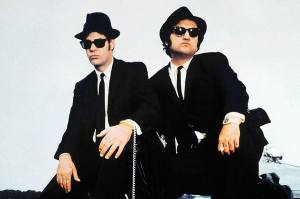Those for whom Dave Eggers’s name evokes only his much praised memoir A Heartbreaking Work of Staggering Genius (2000) may be surprised at just how much straight fiction he has written. “Those for whom,” here, is code for me. I confess it, the pros and cons of transparency being one of the themes of the book under review. In addition to McSweeney’s, his influential literary magazine, and other book-length nonfiction (his 2009 Hurricane Katrina book Zeitoun is exceptional), Eggers has published thirteen lengthy novels.
Here’s one of them: The Circle (2013), a blockbuster satire on the burgeoning power of internet companies such as Facebook, Amazon, Apple and Google. We follow the idealistic Mae Holland, hired by “The Circle,” through her various in-work adventures, sexual as well as technological. She rises through the corporate ranks by endorsing the company line, which is a kind of smiley-face Orwellianism: “Secrets are lies;” “Sharing is caring;” “Privacy is theft.” The Circle’s customers purchase a single online identity called “TruYou,” through which they have access to absolutely everything in the digital universe. This has ended all online fraud, an outcome that strikes me as unlikely, frankly, but there you go.
I summarize this older title at some length because Eggers’s latest novel, The Every, is a direct sequel to it, and hard to follow without some sense of what has gone before. Why Eggers considered a sequel needful is a bit of a puzzle. Perhaps he thought a decade was a long time in internet terms and wanted to revisit his tech-industry material with more up-to-date sensibilities. But the novel doesn’t tread any new ground. It’s like The Circle, but more so, parsing the same mix of admiration for the smiley, shiny spaces of these tech giants and disapprobation at their increasingly totalitarian grip on global culture and society. It even has broadly the same shape as the earlier novel: a young woman — here Delaney Wells — joins the world’s biggest tech company and works her way up.
Now “The Circle” has merged with “the world’s largest e-commerce website,” an entity Eggers coyly identifies only as “named after the South American jungle,” surely not enough to get him off the libel hook should Amazon take umbrage. The resulting commercial behemoth is “the Every,” whose employees are called “Everyones” and whose sunlit, Zuckerbergtopian, secrecy-averse tentacles are in every aspect of human life. The first 100 pages of the novel follow Delaney’s company orientation, clueing-in the reader to the Every’s culture, its campus, dorm-like housing, gyms and recreation activities. We also catch up with several key characters from The Circle, including Mae, who is now head honcho.
But Delaney has a secret: she’s a double agent, a Luddite, whose hatred of today’s internet supersaturation was acquired in her youth and cemented when her parents texted her the news of her beloved grandmother JuJu’s death with sad-faced emojis. She hopes to bring down the Every from the inside. Will she succeed? It’ll take you a great many unhurried pages to find out.
In essence, the Every’s tyranny is an algorithmocracy. Workers are continually monitored (“all the performance measurements, participation points, smiles, ComAnons, step count, sleep hours, frowns”) and the data aggregated by a program called “Everything in Order,” which prompts promotions and sackings, or, as the Every prefers to call it, “deëmployment.’ The company markets an “AuthentiFriend” app by which you can rank your friendships, disburdening yourself of those pals who don’t score highly enough, and “U4U,” a personality test so widely adopted it has superseded psychology (“Freud’s work has the intellectual heft of a streetside astrology,” says Gabriel Chu, the app’s inventor).
There are many more such algorithms. Here’s one: “EveryContent” aggregates film and novel storylines by their audience/reader ratings, creating a template to perfect all future books and films: no epistolary novels, no unpleasant characters, no outdated moral positions and so on. “No book should be over 500 pages,” is one EveryContent rule, though with a knowing nod we’re also told: “if it is over 500, we found the absolute limit to anyone’s tolerance is 577.” The Every is exactly 577 pages long.
If this style of humor is your bag, then there’s certainly stuff in this novel to amuse you, though I found the comedy diffuse, often secondhand, its satire blunted by obviousness. Delaney tries to sink the Every by marketing apps so absurd people will turn against the company, including “Satisfied?,” an app that tells you if you enjoyed the meal you just ate, and “Did I?,” which informs the postcoital whether they orgasmed or not. These releases are, of course, huge hits. No app is too ridiculous for humanity. I was reminded of David Nobbs’s Reginald Perrin who, back in the 1970s, set up “Grot” to sell useless trash, intending it to fail, only for it to become an international success. I’m sure neither Eggers nor his core millennial fan base have so much as heard of Reggie, though they would have done so if they had downloaded my app “NothingNewUnderTheSun.”
This novel suggests, I think wrongly, that ordinary people are idiots — sheep, vexed by choice and happier being told what to do. Faced with a total lack of popular kickback, the Every grows ever more tyrannical and Maoist (their steering group is called “The Gang of 40”). All must wear a camera and all their experiences are harvested. All homes are bugged. Having shamed and pressured people out of international travel and commuting — to save the environment, you see — the Every crashes the US market for bananas and pineapples for the same reason:
“Millions more became unemployed with every new thing the Every canceled, but there was always work in the Every warehouses to work beside robot package-pickers monitored by AI and paid a fair minimum wage.”
The dystopian whomp-whomp of all this grows increasingly grating as the novel proceeds. Satire needn’t jettison all nuance, after all.
There are some interesting smaller-scale think-pieces, but they are embedded in a novel with the texture of suet. Now and again Eggers throws in a bomb — an actual bomb — to try and liven the narrative. But The Every remains drearily unenlivened, right through to its twist ending, which many readers will see coming an ergonomic mile off.
The question it raises for me is: why is Eggers’s non-fiction so much better than his fiction? Perhaps he works best when he unscrews the “satire” filter from his lens and concentrates on the actualities of contemporary life. The extrapolation here is extraneous to the precision and heart that animates a book such as Zeitoun. The Every is one not for everyone.
This article was originally published in The Spectator’s UK magazine. Subscribe to the World edition here.


















